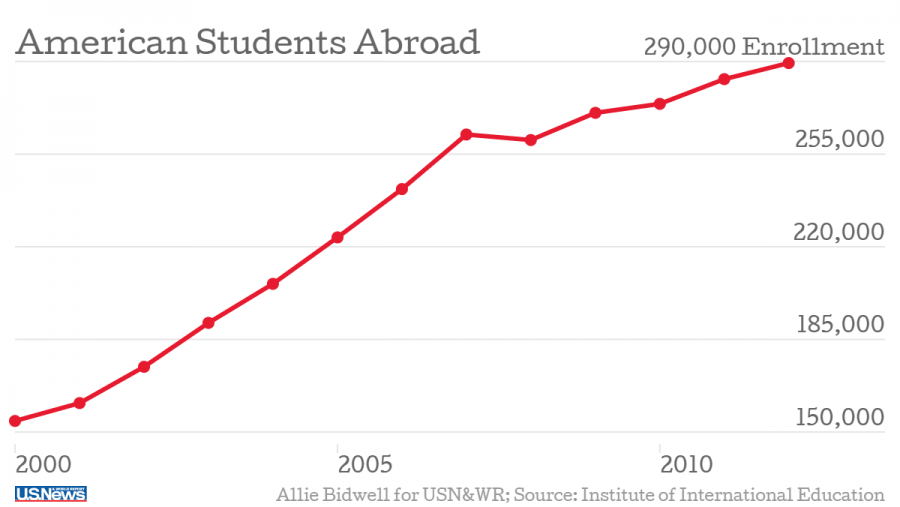Does studying abroad benefit you?
Students around the world admire studying abroad. Some schools encourage students to study abroad. However, does studying abroad actually benefit a student?
For the most part, people only see advantages to studying abroad, but there are also disadvantages to studying abroad. One detriment would be that in some colleges, credits that students have achieved while studying abroad may not go towards their actual college credits. For example, if a student studies in London for a whole year and they receive those credits from studying abroad, those credits they’ve earned will not go towards their true college credits. This problem results in spending more money for more classes to get back however many credits that student had missed while abroad.
Being in a different country by themselves puts a lot of responsibility on a student’s shoulders. Some may become homesick because they miss their family. Some students will learn how to live on their own. That student basically has to take care of themselves while in a totally different country than their family.
Even though there are some amazing advantages to studying abroad, for example, a student who is studying abroad can see the many parts of the world. They can see all of the different cultures and activities that those countries have.
No two countries have the same exact teaching style. This gives students studying abroad the chance to experience these styles, which would help them to learn in different environments. Learning a different language while in a different country can be beneficial for students. Physiological studies showed that knowing two or more languages increases cognitive processes.
Another advantage would be the amount of career opportunities. A student can find a job a lot quicker than college students who do not study abroad. An IES Abroad found that ninety-seven percent of their study abroad alumni find a job within one year of graduation, while only forty-nine percent of other graduates find a job in that time. Another IES Abroad study showed that a twenty-five percent higher starting salary is given to those who study abroad. The skills learned while abroad can be new skills that these students can use while on the job. These skills gathered from studying abroad can also be applied to everyday life.
The decision on whether or not to study abroad is truly up to the student themself. Studying abroad is pretty much an even argument. There are bad things about studying abroad and good things to it. If they easily get homesick or think that they will not be benefitted, then maybe studying abroad isn’t for them. However, if a student is ready for the adventure and is ready to learn different cultures and ways of learning then studying abroad could be for them.



